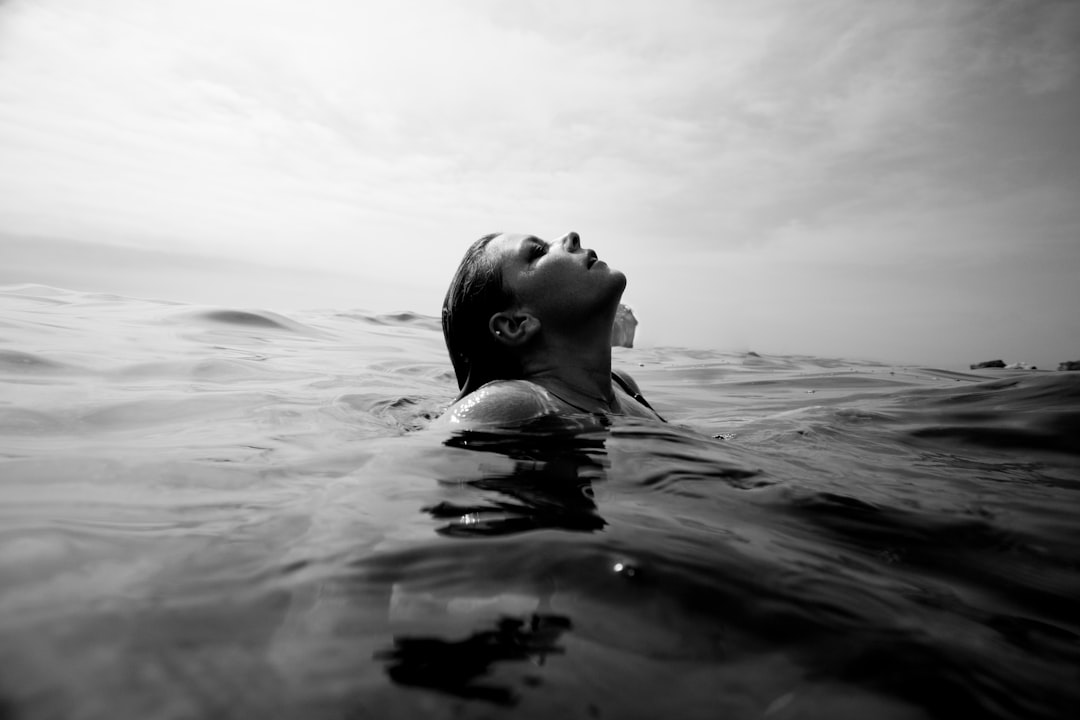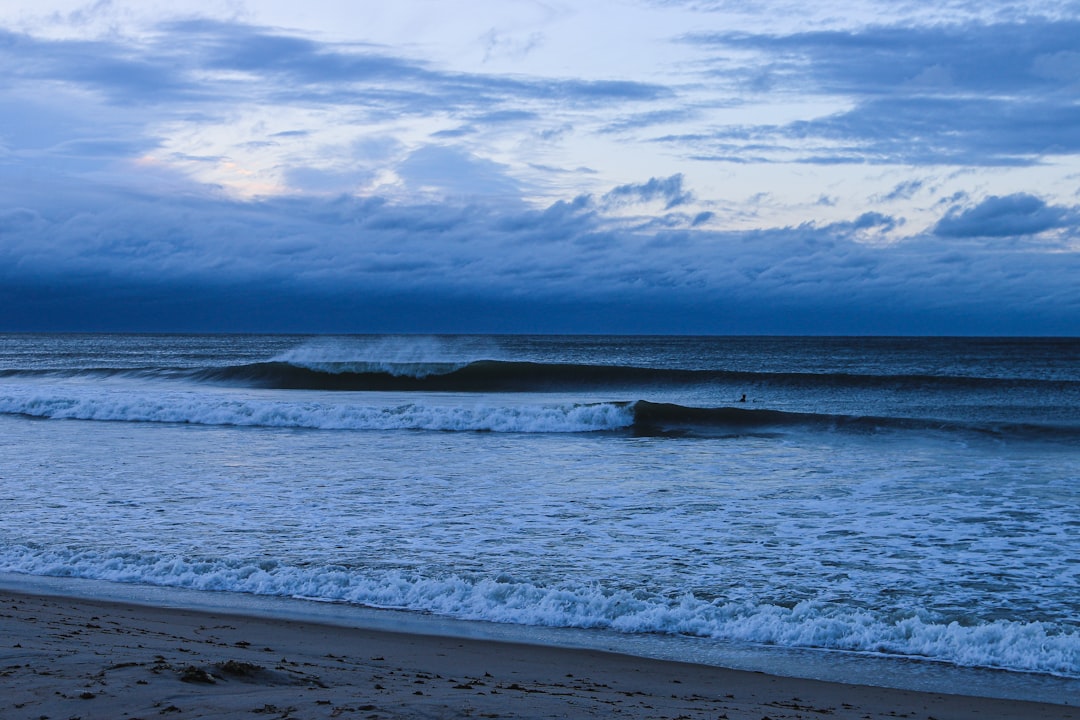Ambiguous Endings
Emma Cline's 'The Guest' & Kate Chopin's 'The Awakening'
Welcome to A Narrative of their Own, where I discuss the work of 20th century women writers and their relevance to contemporary culture.

*Please note: this essay contains spoilers on both books*
I recently read the newest book by Emma Cline, The Guest, after enjoying her best-selling page-turner The Girls a few years ago.
In The Guest, Cline follows a week in the life of Alex, a sex worker who has accompanied an older man to his summer house in Long Island, NY.
Whilst there, she steps out of line on a couple of things, and Simon, the older businessman, sends her back to the city. Alex, however, decides she will spin out the rest of the week bumming around, sleeping where she can, and returning to Simon’s house for his end of summer Labor Day party.
What follows is a page-turning yet stomach clenching few days of watching Alex make bad decisions in order to find a place to sleep each night. Although I couldn’t put the book down, I also felt stressed reading it! Her predicament and scrapes were filled with tension, and although I enjoyed the book, I felt a little disappointed at the end that Cline chose not to give any real backstory as to how Alex had found herself entertaining older men for a living.
That aside however, the ending of the novel appears to have caused some controversy.
Cline, a master storyteller, gives a pretty open ending to the narrative, which can be interpreted in various ways. There is nothing particularly unusual about that; many novels leave the reader space to fill in their own endings and interpretations. What struck me, however, as I raced through the pages, was the book’s uncanny resemblance to an earlier novel of 1899, Kate Chopin’s The Awakening.
When I studied for my English Literature degree, The Awakening was a hot contender for my favourite novel covered on the course. Set in New Orleans and on the Gulf Coast of Louisiana, the story follows the protagonist Edna Pontellier, who is beginning to explore her increasingly unorthodox views on femininity and motherhood. Edna has married a man of Louisiana creole heritage, Lèonce, and the novel opens whilst they are holidaying with their two sons at a resort on Grand Isle.
Edna feels an outsider from the beginning, not being of creole heritage or feeling a ‘natural’ mother, as many of the other women appear to be.
Complications plague Edna in the form of Robert Lebrun, the son of the resort’s owner, who is spending his summer at the resort where the assembled families are holidaying. The wives and mothers are often alone with their children during the hot weeks of the summer, whilst the husbands’ return at the weekends from their work in the city, and Robert befriends the lonely Edna, though he senses that any romantic relationship between them would be doomed.
Returning to the city and believing herself to be in love with Robert, and wishing to pursue an artists’ life earning her own independent income, Edna takes the radical step of leaving her husband and children and obtaining a house to live in alone whilst she makes and sells her art. She also hopes to start up a relationship with Robert. She removes herself from her societal duties and begins to seek a life on her own terms, tending to her own happiness. Her husband fears she is losing her mental faculties due to this, and seeks the advice of a doctor, who advises that he let Edna be and states that she will return to ‘normal’ in due course.
Robert, meanwhile, leaves town to put some distance between himself and Edna. In her desperation to fulfil her own latent desires, Edna turns to another man, Alcèe Arobin, and begins an affair, though her true affection lies with Robert. When Robert returns, he tells Edna that though he is in love with her, he cannot bear the shame that their relationship would bring on her, and leaves her forever.
The book ends with Edna taking a swim, and is often quoted as an example of the enduring scene of that period (and beyond) of women who have transgressed in some way - generally sexually - to have to be punished at the end of the novel. This was often seen as the only way stories of women’s narratives of self-actualisation and pursuit of their sexuality could end, such as the infamous Madame Bovary. I previously spoke about this in my piece on Erica Jong’s Fear of Flying, in which Jong claimed to have specifically wanted to go against this thematic novel ending, with her female protagonist remaining unpunished for her sexual transgressions at the end of her own novel.
Although Chopin chose to end her novel with the (assumed) drowning of her female protagonist, she still received harsh criticism for the book. Chopin did not write any more novels, and had difficulty publishing any further short stories following the negative reception of The Awakening. She died five years later and fell into relative obscurity, until a Norwegian scholar rediscovered her work in the 1960s, leading to The Awakening being regarded as a landmark in feminist fiction.
So how does this come to relate to Cline’s The Guest?
On the surface, the two women protagonists’ have little in common other than their pretty open-minded attitude to sex. Cline’s character of Alex, however, is clearly a sex worker and is trying to establish herself as safe within Simon’s world, in order to escape a threatening relationship with an ex (and ?pimp) back in the city. Edna, meanwhile, has the means to leave her husband and pursue her own life, albeit in disgrace.
But it is that opaque ending which reminded me so much of the earlier novel, as well as the ongoing hints around water, escape, and living on the fringes of societal expectations throughout both books.
In Cline’s novel, Alex takes any chance she can get to dive into the nearest swimming pool, of which there are plenty within the gardens of the rich people’s summer houses. She also spends a lot of time on the beach, diving into the waves, and challenging herself to see how far she can swim out before she tires too much to get back to shore. This felt like a great deal of foreshadowing; it felt like Alex knowing that at some point, she might not be able to make it back to shore - or in life - and that she may sink.
Similarly, Edna swims throughout her summer, and in both novels, there is an incident of both Edna and Alex almost drowning, having swum too far out and thinking they will be unable to reach back to shore. As well as foreshadowing, this felt like a metaphor for both women’s life choices.
The lines in the ending scenes of both books are also strikingly similar. In Cline’s, Alex arrives at the beach to change into her party outfit after being involved in a car accident. The scene then uncannily jumps to the Labor Day party, where she takes in the way the other guests appear to ignore her, and a surreal description of the garden and the flowers, which is not in keeping with the rest of the novel. The scene has the quality of a dream, as she speaks about wandering through ‘the other realms of the party’ and ‘Passing through other people’s conversations’, as well as her plate of food mysteriously disappearing when she puts it down. She sees the pool, which appears as a deep hole and unsafe, not as she remembers it. The guests appear unreal and she references ‘how close this was to being over’. Meanwhile, her limbs appear unable to move towards Simon, similar to when she could not move towards the shore.
‘He was waiting for Alex, and all she had to do was walk over. Now, she told herself, willing her limbs to work.’
In Chopin’s novel, meanwhile, after Robert has left her, Edna also goes into the ‘bath-house’ in which to change for a swim, before deciding to enter the water naked for the first time in her life. As she swims out, she recalls her earlier difficulties in getting back to shore and how afraid she felt then. In a similar echoing of Cline’s final paragraphs, Edna recalls the ‘blue-grass meadow’, with nature featuring in her thoughts.
It states that ‘Her arms and legs were growing tired’, and that ‘it is too late; the shore was far behind, and her strength was gone’.
The Guest’s Alex appears to have reached the end of her own endurance also, having remained positive and focused throughout her journey to get back to Simon.

Of course, my reading of Cline’s novel is only one interpretation of the ending: having searched online, I see that many other readers have theories on Cline’s meaning. That is the beauty of the open-ended novel, I suppose. Although I did see others recognising the similarities between Edna and Alex.
What is most interesting to me however as a researcher into women’s narratives of the past and present, is that writers are still grappling with this idea of women’s autonomy and the ways in which they may be punished for their choices, particularly when it comes to the norms of society and class and gendered roles within it.
In The Guest, is Cline presenting Alex as a misguided young woman who makes bad choices, or as a victim of a classist society in which she is never going to win? If you have read the book, I would love to hear your take on the ending!
If you have just found this newsletter and love discussions on all things literature, as well as connections to both contemporary culture and the art of writing, please consider a free or paid subscription. Paid subscriptions help me to continue to write and research quality newsletters every week - and the yearly fee works out at less than £2 per month! Thank you for reading 😀




I really enjoyed reading this. It draws parallels really well between the books. Think it’s time for me to widen my reading.
I loved this essay, Kate! When I read The Guest this summer, I too kept thinking of The Awakening. I’m struck by how dependent both women are (Alex and Edna) on men who don’t care about them or who seem incapable of loving them. Despite their attempts to make some other way, the path society wants them to follow is so insistent.
When I finished The Guest, I was also thinking of Cheever’s “The Swimmer.” I feel like Cline is playing with the modernist obsession with watery metaphors. I also felt reminded of Patricia Highsmith’s Talented Mr Ripley--because I felt that I was kept waiting for Alex to do something wayyyyy over the line, but she never did.
There’s something there, about immobility or treading water, that feels very 19th century American Realism to me.